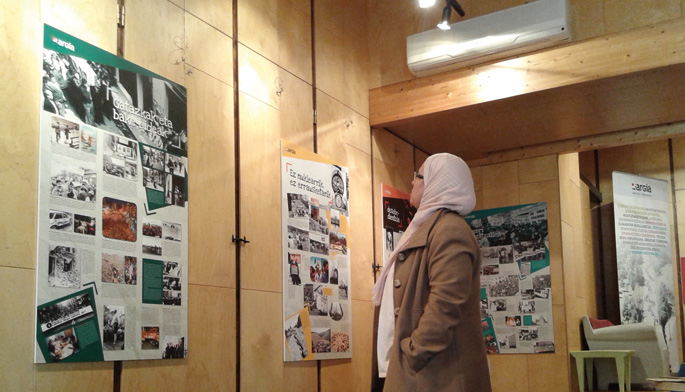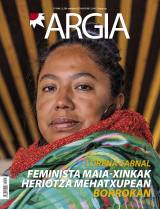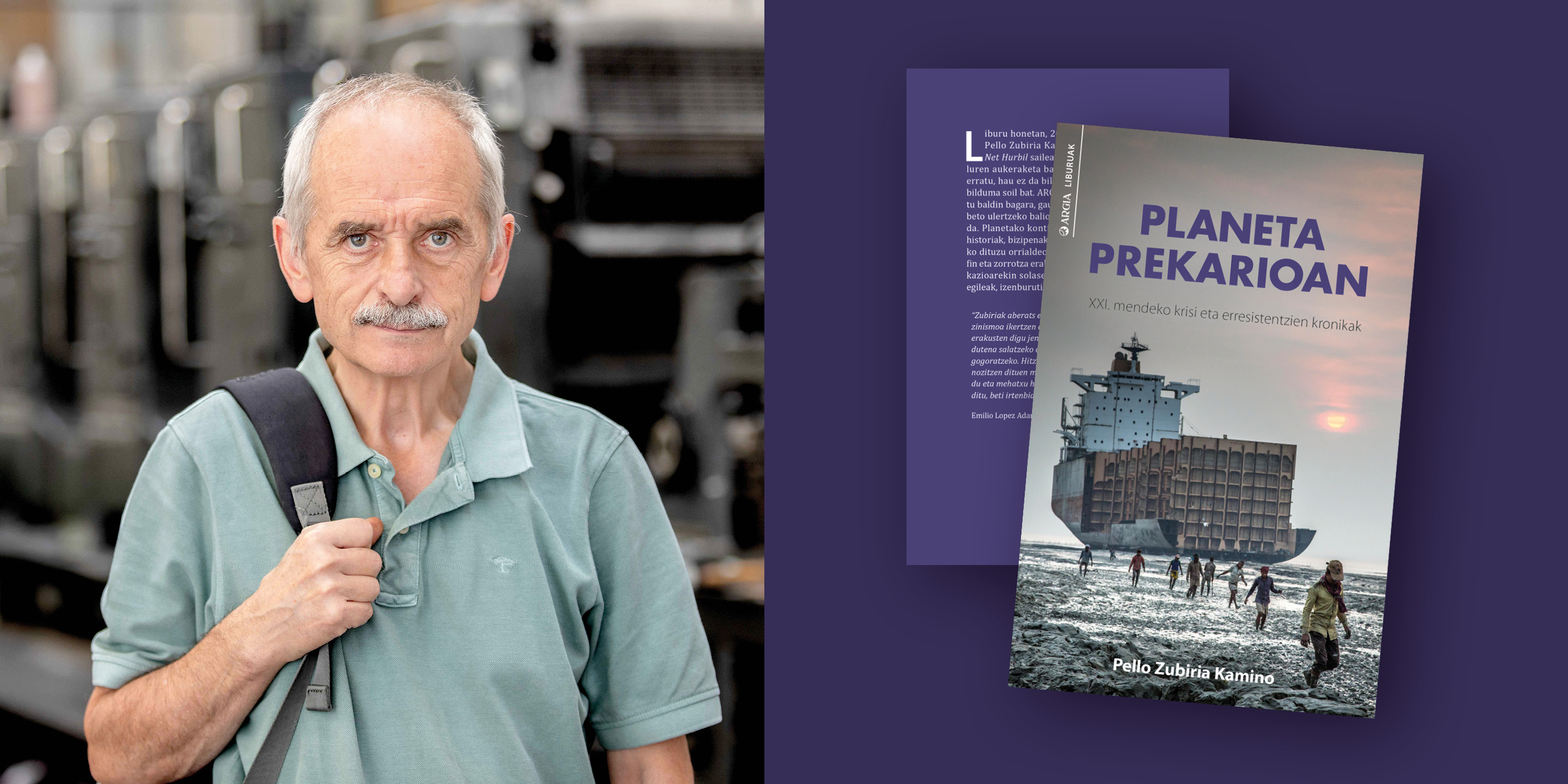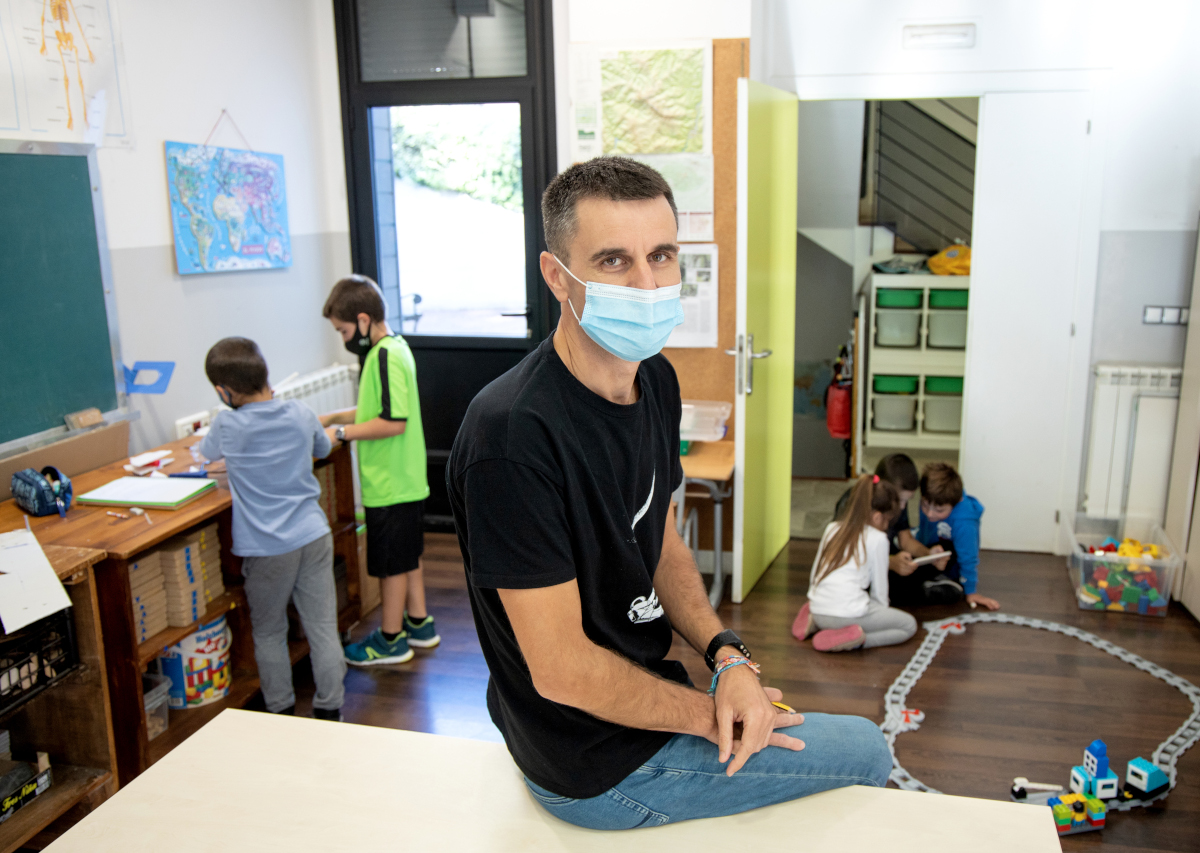The 'Other Glasses to See Lasarte-Oria' initiative is underway

How many lasartears do you know that ARGIA is based in your village? And how many readers know that? Some of you are sure, but I'd like to know the data. The ARGIA team will think that is already known, but I have my doubts. In any case, the next step of the project is on its way to making itself known.
There is a desire to continue growing in the ARGIA community, and fieldwork is already underway. First stop Lasarte-Oria. The first thing is that the initiative should be transferred to other peoples. The values of ARGIA are the issues that are dealt with on a day-to-day basis on the Internet and on paper, and from those glasses you look at the world. But the world is on the street, and that is where the path has begun to influence it; in society, below, with those values. Two years ago the Argia Eguna was restored and now we want to work with the local agents and the ARGIA community, organizing initiatives in collaboration with the agents of the people, maintaining a direct relationship with the citizens...
Lasarte-Oria has a special meaning for ARGIA. It has been based in Oria since 1990, where the journal is published and printed. Today the Ametzagaiña Group has four and a half hundred workers.
There's community, there's project objectives, etc. OK... but what do you intend to do at Lasarte-Oria?
One-week programme
The program will start on May 9 with the exhibition Transitions, which can be visited until May 14 in Sala Mercero from 18:00 to 20:00 hours.
Through a guided tour you will be able to visit ARGIA at the venue itself on May 10 (Tour del Circuito, Pavilion 15) at 19:00, and will be open to anyone who wants to approach.
And to complete, the evolution of the Basque Country in Lasarte-Oria. In retrospect, a round table will be held in Villa Mirentxu on 12 May at 19:00. The rapporteurs will be Mailu Arruti (member of the Ttakun association and member of AEK), Pello Sasiain (former councillor of the Basque Country) and Marga Iturriza (professor of the Sasoeta-Zumaburu centre).
Santi Cobosen ahozko testigantzan oinarrituta, espetxearen erretratu bat da Zigor Olabarriaren Txori Urdinak liburua. Santi Cobosek (Leon, Gaztela, 1968) bizitzaren erdia eman du preso. Pairatu ditu torturak, jipoiak, muturreko isolamendua, FIES sailkapena; burutu ditu ihes... [+]
























